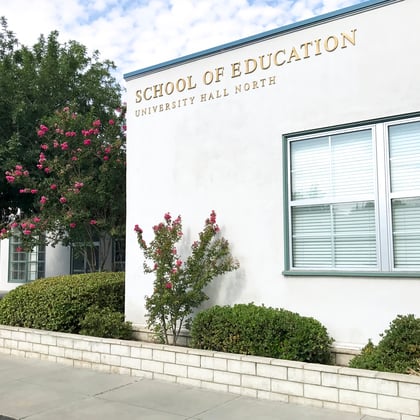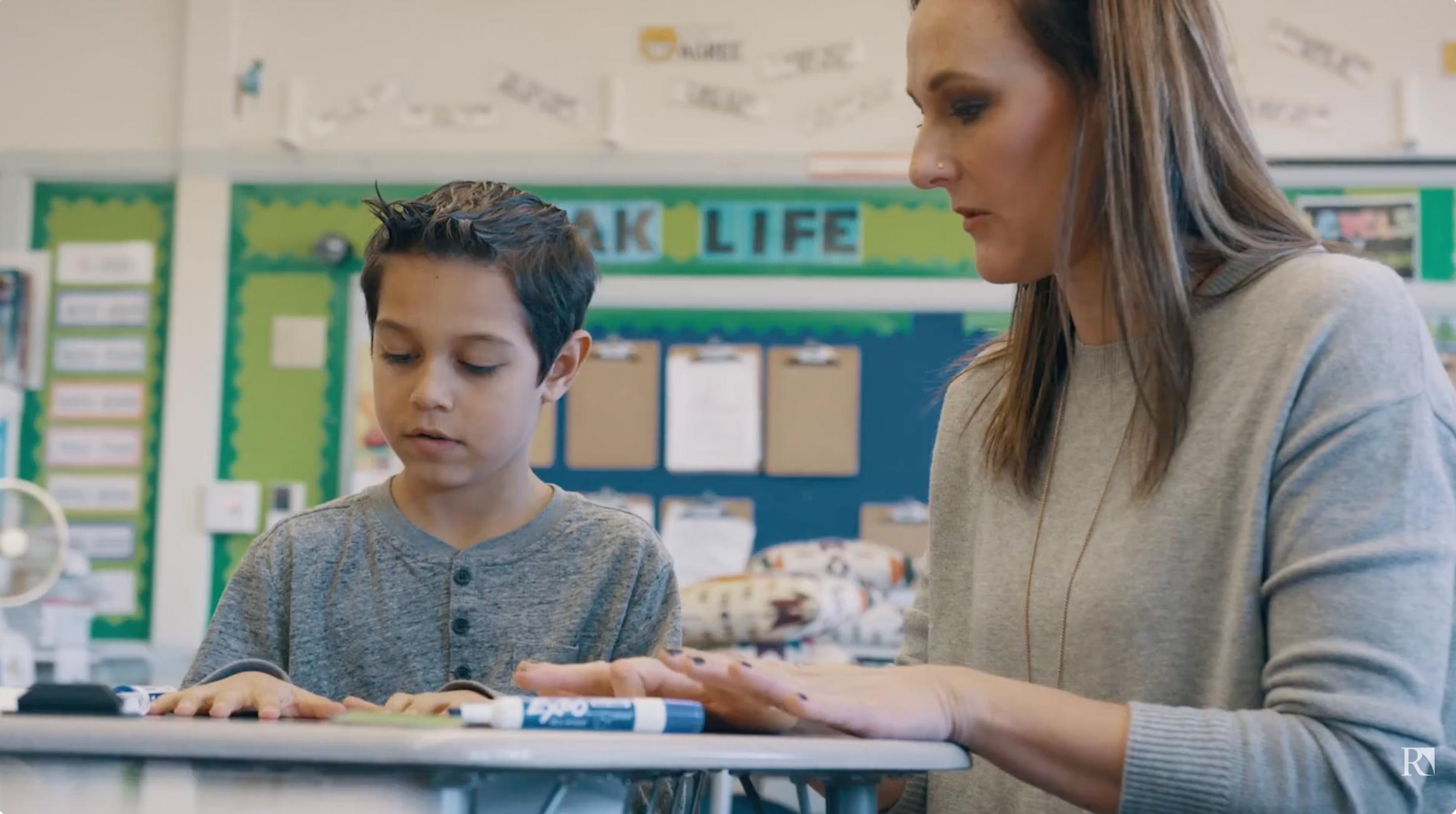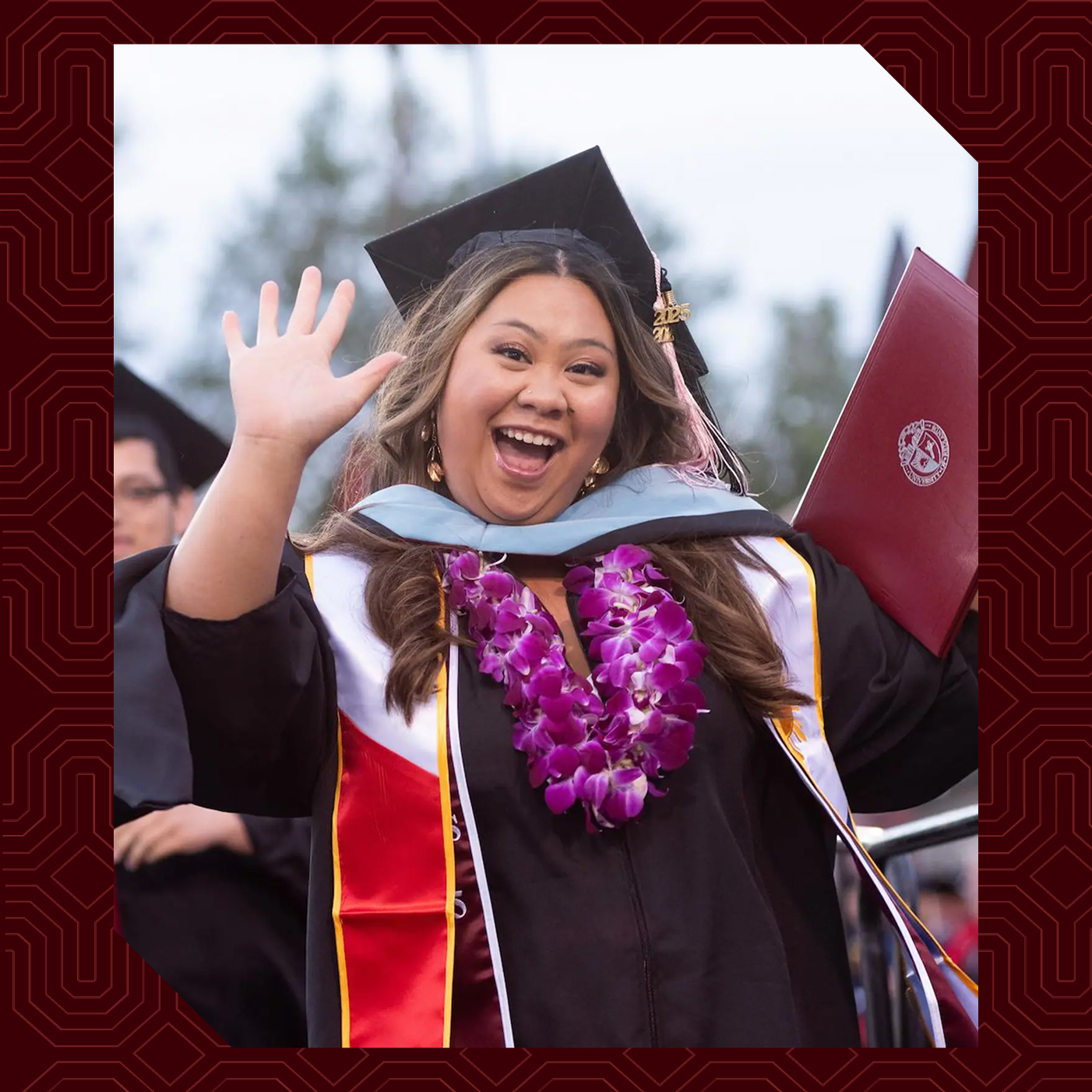Find us on campus

University Hall North

The Master of Arts in Education: Learning and Teaching Single Subject Track degree blends a master's in education with a teaching credential to prepare you to teach a specialized subject area upon graduation. An innovative program integrating research and practice, the curriculum addresses new approaches that respond to the complexities of teaching in the modern world.
University of Redlands School of Education is a leading force in the world of education. The Master of Arts in Education: Learning and Teaching degree lays the foundation for a fulfilling career in education.
The curriculum builds expertise from theory and inquiry to action, with challenging and rewarding coursework that is accented by full-time student teaching in school placement. Students in the MALT program gain knowledge of fundamental teaching methods in instructional design and foundations of learning in order to better serve their own future students.
This teacher preparation program is accredited by the California Commission on Teacher Credentialing (CCTC) and aligns with SB 2042 standards.
Fieldwork plays a vital role in helping students gain hands-on experience, build professional networks, and develop a strong professional identity. You can choose from three options to fulfill the fieldwork requirement of the program: student teaching, a teaching internship, or a teacher residency.
The School of Education maintains a robust connection with the community and is always seeking to expand partnerships. If you're interested in collaborating with the School of Education as a community partner or seeking opportunities to complete fieldwork in a specific school, district, or community, we encourage you to reach out. Please contact the Office of Licensures and Credentialing for more information.
Student teaching places you in one of our partner school districts, where you will work full time alongside a cooperating teacher for 14 weeks. You will receive guidance from University of Redlands as you develop your classroom management skills and instructional strategies.
A teaching internship allows you to seek a paid, full-time teaching position at a public school district or charter school and assume primary responsibility for a classroom. You will work closely with a district-assigned mentor teacher and a university supervisor from Redlands for at least 14 weeks while in the position. You may be eligible for this immersive option if you have previous teaching experience.
A teacher residency lets you build your teaching experience under the mentorship of an experienced educator for one full academic year. By working alongside your resident mentor teacher, you will apply theory to real-world situations and strengthen your instructional abilities in a supportive environment. Explore the Teacher Residency Program.
The following requirements apply to all M.A. in Education: Learning and Teaching programs, including the multiple subject, single subject, dual credential, and mild to moderate support needs tracks.
The coursework and field experience segments of the program are delivered in a prescribed sequence. Pathways are recommended for timely program completion. Learn more by viewing this pathway resource.
To view specific classes, program requirements, and coursework information, visit the current university catalog.
This program is offered in a hybrid modality. The hybrid modality of this program is delivered through a combination of in-person, on-site instruction and synchronous virtual instruction. Students will be expected to be on campus for one course meeting per week. Despite instruction being offered in a hybrid model, this program does require an in-person fieldwork component.
Priority 1 Deadline: January 15
Priority 2 Deadline: June 1
Priority 1 Deadline: October 1
Priority 2 Deadline: December 1
Priority 1 Deadline: February 1
Priority 2 Deadline: April 1

University Hall North



Through the MALT degree, the School of Education at Redlands is dedicated to developing and mentoring compassionate, influential teachers who are driven to contribute to something greater than themselves. The degree pathways allow students to find the specialization for their interests and future success as a teacher. The MALT degree also lays the foundation for a long-term future in education, not only as a teacher but also in leadership roles as well. Teaching experience is the first step to becoming a department head, administrator, or principal that can shape educational access and equity for a school and the greater community.

In less than four years, Emily Dominguez ’25 completed both her Bachelor of Music in Music Education and Master of Arts in Learning and Teaching. Today, she’s inspiring young musicians as an elementary music teacher in the San Bernardino City Unified School District. The role reflects her passion for music, commitment to guiding others, and underscores how a Redlands education turns dogged determination into community impact.
— Emily Dominguez ’25, BM Music Education, MALT
Elementary School Teacher in the San Bernardino Unified School District

The Teaching and Learning department is under the School of Education. We prepare educators for rewarding teaching roles at the Pre-K-12 levels through an array of bachelor's and master's degrees, as well as preliminary teaching credential programs. Our faculty are accomplished professors who work in the areas of teaching, educational justice, and equity. Learn more about all our programs, student resources, and faculty.
Admissions - Graduate
Feb
10
Admissions - Graduate
Mar
03
Admissions - Graduate
Mar
10
Admissions - Graduate
Apr
14
Admissions - Graduate
May
12
Admissions - Graduate
Jun
09
Get in touch with our admissions team.